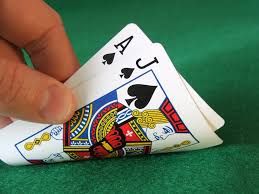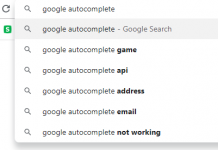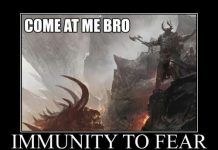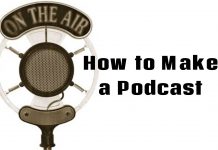Ultimately in any gambling situation, the odds are stacked in the House’s favor, but if you want to be entertained and make your money last, Blackjack is the game for you if you play smart more than lucky. You can lose a little money for that entertainment or be able to buy yourself a nicer dinner courtesy of the House. With these blackjack tips, maybe you’ll clean House or at least, not get swept off the floor.
Some important foundations to keep in mind when playing Blackjack:
1. The revealed card Dealer’s Hand informs how you should play your own hand
A beginner’s mistake is for someone to look only at their own hand and see how close to 21 can they get. Your main goal should be to beat the dealer and while that’s established by getting to 21 or as close to it as possible, you have to remember that the dealer has the potential to bust.
2. Just because the option to Double-Down or Split is available doesn’t mean you have to do it
Because people tend to see as blackjack as a fairly routine game, some will jump at the opportunity to try something different when it is available. The opportunity to split cards and play two hands at the blackjack table is tempting because it means you can potentially double your money. However, there are certain cases where it is more prudent to not split your cards and that will be covered here.
3. Treat any wager as money that you’ve already lost
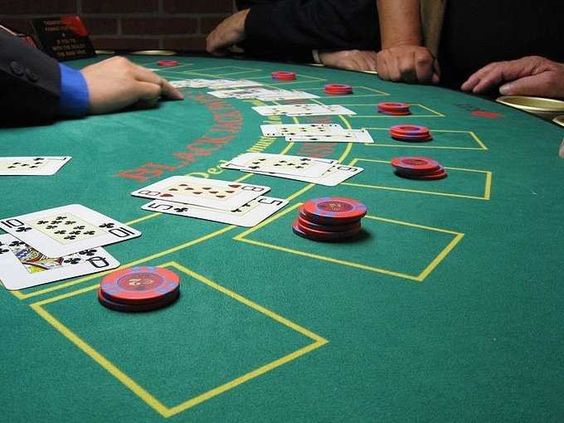
When gambling, it’s psychologically better to treat any money you are planning to wager as the cost of entertainment. You can spend money on a theme park, a movie, or a nice fancy sit down dinner so treat money that you budget for gambling the same way. And it is very important that you maintain a budget or a limit to your spending, to avoid the gambling mistake to continue betting in order to recoup losses.
Don’t gamble anything that you can’t afford to lose.
With this in mind, here are the tips when it comes down to playing blackjack:
- If the dealer’s face up card is a 7 or higher, hit until you at least have 17.
Since the Dealer is required to stand on a 17, it makes no sense to keep the value of your cards below this number when the probability is decent that a 10-value card will lock in the Dealer’s hand to a number that you have to beat.
Even if you have 16 and the Dealer’s open face card is at least 7 (potentially making it 17), it’s recommended that you should hit and hope for a low card. If you don’t opt for that low card and the dealer gets a 17 or above, you can regret your cards by saying, “I should have gotten another card.”
It’s better to bust when you have a 16 where there’s no opportunity to win rather than standing on 16, leaving a wide gap where “you could have won.”
- If the dealer’s face up card is 4 to 6, and you have at least a 14, stand.
Since a Dealer is required to hit on a 16 or below, your best tactic is to allow the Dealer to over deal their hand to Bust since the likeliness is for the covered card is to be a 10-value card, making the Dealer’s value 12 to 16, forcing the Dealer to play another card. If they bust, then it doesn’t matter what your hand value is, as long as you don’t bust.
- If the dealer’s face up card is 2 or 3 and you have a 13 or less, hit. If above 13, stand.
Here, we are beginning to play the odds of what the Dealer has. If a Dealer has a 2, the odds that they will bust from getting two 10 value cards in a row is only about 10% (actually 9.4% but easier to think 10%). The odds that YOU will bust from a 12 is 30% so it’s in your favor to hit on a 12 because they are not likely to bust and you have a good chance not busting.
On a 13 is different; If a Dealer has a 3, the odds that they will bust of from revealing a high-value card and then dealing another high-value card is about 15% (actually less than 14%). The odds that YOU will bust from getting a high-value single card is nearly 40% (actually about 38%). While the odds are getting higher and this makes a player less comfortable, it is still in your favor to hit rather than stand.
- If the Dealer has an Ace and offers insurance, it’s not worthwhile to take it.
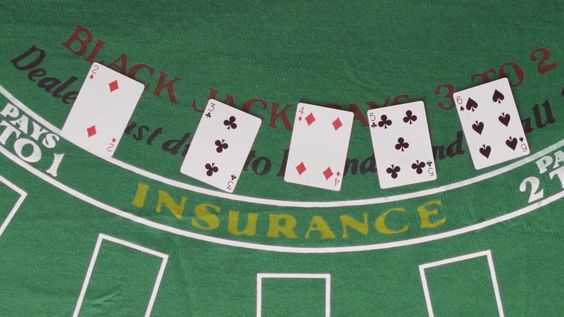
The cost of insurance is ½ o your wager so if you are betting $10.00, your insurance wager is $5.00. If you are correct in betting that the Dealer has blackjack, then you get your money back, which is essentially a push and you don’t actually gain anything.
The chances of the Dealer having Blackjack from an Ace are 30%, only to get your money back and effectively nullify a bet.
But if you are wrong that the Dealer does NOT have blackjack, you lose your insurance wager AND you can still lose your regular ante wager. If you win, you effectively only won half (50%) of your wager from making a wrong bet. If you lose, you lost 150% of your wager on an insurance bet whose odds were never in your favor to begin with.
In summary, don’t take insurance bets. It’s more painless to lose that bet and make up for it in the next few hands than waging just to break even.
- Split if you are dealt two Aces or 8s; it’s less useful to split anything else.
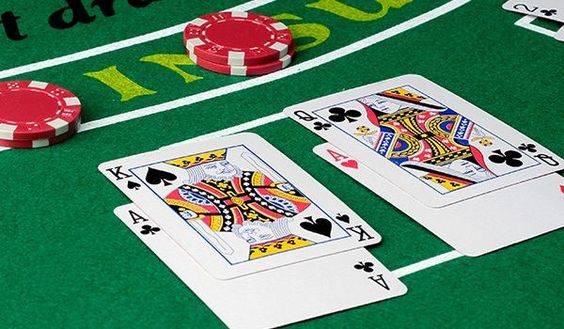
A common thing for people to do is to split 10s or Face cards if they are dealt a pair. Again, people automatically think that by splitting 10 value cards, they have the opportunity to double their wager and receive double their money.
If you have a 20, that pretty much guarantees a win, short of the Dealer getting 21. It’s better to get a single win that is nearly guaranteed than having two hands that could both potentially lose; or “worse,” one bet wins and the other doesn’t, canceling any gain that you could have.
Splitting aces is a no brainer because it’s two chances to get Blackjack! Splitting 8s is a great strategy because otherwise you have 16 and knowing that the Dealer stands on a 17, it’s better to have two chances of getting 18 on two hands rather than a poor stand of a 16
Double down? It depends.
While you always have the option of doubling down when you have a 9, 10, or 11 play a single card and double your money, again, just because you have the option available does not mean that you have to take it. But unlike splitting, your odds are generally better because 10 and 11 are comfortable places to bet on a high card.
If you have an 11, this is a pretty strong position to double down UNLESS the Dealer’s card is showing a 10.
If you have a 10, this is a decent position if the Dealer is showing a 3 to a 6, which is high signs that the Dealer is likely to Bust.
I rarely want to double down on a 9 and I’ll only do so if the Dealer is showing a 4 to 6 IF I feel like it. While I have to hit anyway, I don’t want to double my bet on a shaky position.
Does this ultimately work?
Well, my last trip to Vegas I lost $80.00 on slots. It may have taken me an overall 45 minutes to lose that. I just wasn’t that lucky on slots.
Then I sat down in two different casinos playing blackjack and I gained $60.00 of that back. Total time? An hour and a half.
Check here for more in Critical Shots for different types of gaming and geekery!

